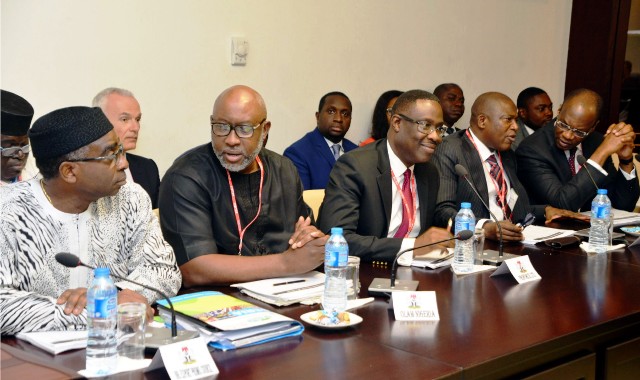Business
Minister Reassures On ERGP Implementation

The Minister of Budget and National Planning, Senator Udoma Udo Udoma says the Federal Government will continue to pursue aggressively the implementation of the Economic Recovery and Growth Plan (ERGP) to sustain economic growth.
Udoma said this in a statement signed by his Special Adviser on Media, Mr James Akpandem in Abuja recently.
The minister was reacting to the Second Quarter Gross Domestic Product (GDP) report released last Tuesday by the National Bureau of Statistics (NBS) which showed that Nigeria had exited recession.
The minister said government would require the cooperation of all Nigerians to enhance the recovery rate and ensure the achievement of the objectives of the ERGP.
He said that the government would also work on improving the ease of doing business to attract more investments.
He, however, said the recovery of the economy from recession was an indication that various policies of government towards reflating the economy as set out in the ERGP, were yielding results.
The minister said that two major objectives were in focus when the ERGP was launched by the President early this year – to get the economy out of recession and then put it on the path of sustained inclusive and diversified growth.
“We are happy that people are beginning to see the results of the efforts we have been putting through in the last two years to get the economy back on track.
“Now that we have accomplished the first task, attention will now be on growing the economy as rapidly as we can.
“As the economy continues to grow, the people will feel the impact of the growth,’’ he said.
According to him, the major focus of government is to reflate the economy through spending in strategic sectors like infrastructure, agriculture, solid minerals to galvanise economic activities and empower the people.
He, however, said that effort had also been concentrated on increasing revenue generation to meet with the challenges of the economy.
Udoma said it was gratifying to note that the growth recorded was broad-based, as the non-oil sector showed improvements in the last two quarters.
“For instance, the agriculture sector continued to grow in 2017, recording a 3.01 per cent growth in the second quarter of 2017.’’
He also said that Industry recorded positive growth of 1.45 per cent during the same period while manufacturing, which had been recording negative growth also turned positive.
Transport
Automated Points Concession : FAAN Workers Gave 72hrs To Revise Decisions In PH

Transport
FAAN Announces Pick-Up Points for Go-Cashless Cards

Business
Fidelity Bank To Empower Women With Sustainable Entrepreneurship Skills, HAP2.0
-
Politics3 days ago
2027: NIGERIANS FAULT INEC ON DIGITAL MEMBERSHIP REGISTER DIRECTIVE
-

 Environment3 days ago
Environment3 days agoLAWMA Director Says Sweeping Reforms Have Improved Waste Collection
-
Politics3 days ago
LP Crisis: Ex-NWC Member Dumps Dumps Abure Faction
-

 Politics3 days ago
Politics3 days agoUmahi Dismisses Allegations On Social Media, Insists On Projects Delivery
-

 Sports3 days ago
Sports3 days agoAbia Not Sure To Secure continental Ticket
-
Sports3 days ago
La Liga: Yamal Records First Career Hat-trick
-
Politics3 days ago
NATASHA ELECTRIC VEHICLES INITIATIVE IN KOGI CENTRAL
-
Politics3 days ago
IT’S A LIE, G-5 GOVS DIDN’T WIN ELECTION FOR TINUBU – SOWUNMI

